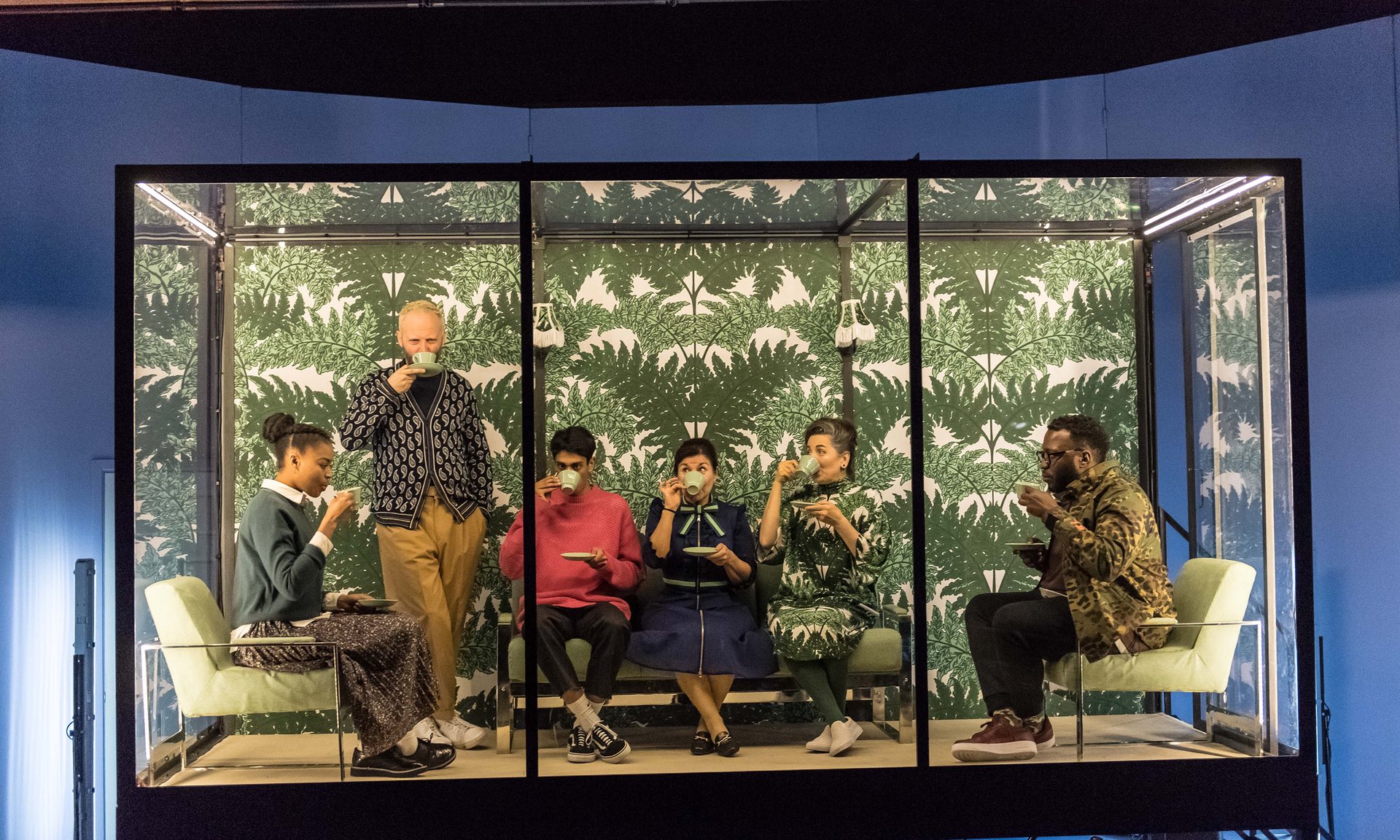‘Ambitious flower girls who see this play must not imagine they can pass themselves off as fine ladies’, flashes repeatedly across the stage before the play has even begun. Sam Pritchard’s reworking of Bernard Shaw’s 1905 classic Pygmalion brings the play into a post-modern world with the use of on-stage technology, giving the play an eerie relevance to debates of current prejudice.
When the naïve yet independent Eliza Doolittle first visits phonetics-expert Henry Higgin’s Instagram-ready, minimalist-style apartment, Higgins places her in what is essentially a moveable human-size cardboard box in which he can record and analyse her thick Bradford ‘working class’ accent. Consequently, we see how Eliza is trapped by the limitations of her voice, while Higgins is trapped by his own prejudice. It is humorous yet sinister; Alex Beckett and Natalie Gavin’s onstage chemistry keeps the play sharp and energetic. Eliza gives as much as she gets, and Gavin’s brilliant performance means we are constantly fearing for her fate.
‘The play’s visual finesse is one that is relevant and millennial’
The play’s visual finesse is one that is relevant and millennial. The stage is curved into a semi-circle, and characters use an on stage camera in which the image is projected onto the backdrop. The effect is a Big Brother style all-seeing eye, and we see how Eliza’s life is being controlled by Higgins. The play begins on a postmodern note as characters mouth their speech to pre-recorded voices. However, if there’s one criticism to be made of Pygmalion, it is that the play sets us up for a postmodern exploration of the self and our corruption through technology, only to forget about some of these themes after the first act.
‘The play… explores how we perceive class and the damaging effects of this prejudice’
In our post-Trump world, the need to reconsider the workings of prejudice is more poignant than ever. The play doesn’t only explore how we perceive class and the damaging effects of this prejudice, but makes us question what values we are upholding in doing so. The production brings the play into the 21st century with a visually stunning effect, and we are consequently presented with a world that is being corrupted by the prejudice of a bitter ignorant man. Sound familiar at all?
Juliette Rowsell
(Image courtesy of The West Yorkshire Playhouse)

